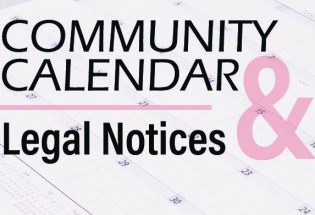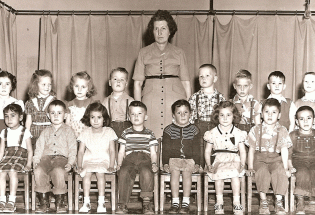Controversial school immunization bill signed into law

The law, which aims to increase Colorado’s immunization rate, currently the lowest in the nation, was met with criticism from groups such as Colorado Health Choice Alliance, Colorado Freedom Force and Christian Home Educators of Colorado, as well as protests at the state capitol in recent months as it passed through the senate and house. As a result, homeschooled children received an exemption from the law just days before it was signed.
Nevertheless, a majority of lawmakers determined that the law was necessary for the vast majority of children, citing a proven track record of immunizations of saving lives and money, higher rates of vaccine-preventable diseases in states with lenient exemption policies, and a current potential for large numbers of students to be excluded from school due to non-vaccination in the case of a disease outbreak.
The goal of SB20-163 is to achieve 95 percent immunization coverage in schools in order to “protect the health of students, staff, and others in the community, including people who cannot be vaccinated for medical reasons or because they are too young to have received all recommended vaccines” (Section 1(m)).
Lawmakers plan to achieve this through key changes to current immunization exemption requirements. Under the previous law, parents who wished to opt their children out of immunizations upon entering school could do so with either a certificate of medical exemption or by providing a statement of nonmedical exemption for religious or personal reasons.
Under the new law, the Colorado Department of Public Health and Environment (CDPHE) will be required to develop standardized forms and a submission process for parents who wish to opt their children out of or delay any immunizations required by law, as defined by CDPHE.
In accordance with the new law, in order to opt children out of an immunization, parents must provide:
- a medical exemption certificate from a licensed physician
- a certificate of nonmedical exemption from a licensed physician
- A certificate of completion of the online education module which will be made available through the Department of Public Health and Environment
While SB20-163 still allows families to opt-out of immunizations, opponents voiced concern that it would be difficult to find a physician willing to sign a nonmedical exemption form, as the new law leaves it up to physicians to decide whether or not to sign the form.
Opponents of the bill stated that the increased difficulty in obtaining immunization exemptions infringed upon families’ freedom to make their own medical decisions.
Stricter exemption requirements aren’t the only aspect of the new law that critics find concerning. With the passing of SB20-163, it will now be mandatory for physicians to submit immunization, medical and nonmedical exemption data to an immunization tracking system, including name, date of birth, sex, school name, parents names, immunization records, and any exemptions claimed.
Information collected will be used by CDPHE to evaluate and revise the state’s immunization practices and guidelines on an annual basis. In addition, schools will be required to publish their measles, mumps and rubella immunization rates and any additional immunization rates they choose to include on an annual basis and distribute to families of enrolled students.
The law does, however, include a requirement that the forms provided by CDPHE include a notice to parents that they have the option to exclude students’ exemptions from the tracking system.
While groups who opposed the bill argue that the government is stripping Coloradans of their freedom by putting children in a government database, giving more control of children’s health to a state department, and removing the distinction between religious and philosophical immunization exemptions, proponents of the law say it is necessary to prevent the spread of disease and to save tens of thousands in publicly funded disease investigation and prevention.
By creating a vaccinated-children standard and reporting and recording school immunization information, lawmakers say the bill will prevent “dangerous, costly and sometimes deadly diseases” (Section 1(g)).
Colorado lawmakers have appropriated $41,906 to CDPHE to implement the new law for the 2020-21 state fiscal year. The standardized immunization document, detailing vaccination and age requirements under SB20-163 will be made available by CDPHE no later than January 31, 2021.
By Katie Harris
Berthoud Surveyor
- March, 30 2017

TMS student spells out a W-I-N
By Bob McDonnell The Surveyor Adrian Reghitto, an eighth-grader...
- May, 12 2016

BHS students raise over $6K for youth...
By Aaron Reynolds The Surveyor Thursday, May 5, at Berthoud High School a group of...
- May, 13 2021

Berthoud FFA announces first-ever Fun...
After a limited year of activity, Berthoud Future Farmers of America (FFA) is excited to...
- March, 09 2017

New tests track students’ progress th...
By John Gardner The Surveyor Thompson School District administration is providing a new way to...
- April, 12 2016

Thompson Reinvented Proposal forum at...
By Surveyor Staff The Thompson School District will host its first community forum focused on...
- May, 02 2019

Berthoud trustees ask TSD to help fun...
By Dan Karpiel The Surveyor Anytime a governmental body takes in more money tha it...
- Asher Architects builds projects from...

- More than a market, a family legacy

- Colorado business confidence is impro...

- Community Calendar & Legal Notice...

- Community Calendar & Legal Notice...

- Community Calendar & Legal Notice...


Unified basketball comes to Turner Middle School
Community News

Mike Grace says goodbye as Brett Wing joins town board
Community News
POLICEBLOTTER
Community News
Northern Water sets C-BT quota at 70% for 2024
Community News

Emotions run high during Revere Property hearing
Community News
Snowpack at 119% above normal
Community News

Karspeck to serve third term as Berthoud mayor
Community News
COMMUNITY CALENDAR:
Community Calendar – add an event
Homestead Fine Art Gallery First Fridays OPEN HOUSE
03 May 4:00 PM - 7:00 PM
Homestead Fine Art Gallery First Fridays OPEN HOUSE
07 Jun 4:00 PM - 7:00 PM
Homestead Fine Art Gallery First Fridays OPEN HOUSE
05 Jul 4:00 PM - 7:00 PM
Homestead Fine Art Gallery First Fridays OPEN HOUSE
02 Aug 4:00 PM - 7:00 PM
Homestead Fine Art Gallery First Fridays OPEN HOUSE
06 Sep 4:00 PM - 7:00 PM
Homestead Fine Art Gallery First Fridays OPEN HOUSE
04 Oct 4:00 PM - 7:00 PM













